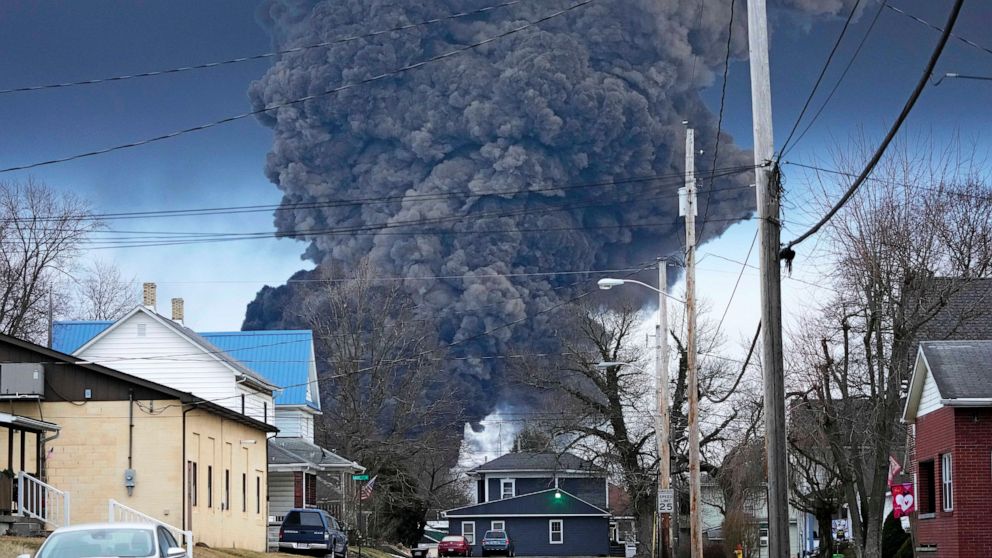WASHINGTON — Soon after a train derailed and spilled toxic chemicals in Ohio last month, anonymous pro-Russian accounts started spreading misleading claims and anti-American propaganda about it on Twitter, using Elon Musk’s new verification system to expand their reach while creating the illusion of credibility.
The accounts, which parroted Kremlin talking points on myriad topics, claimed without evidence that authorities in Ohio were lying about the true impact of the chemical spill. The accounts spread fearmongering posts that preyed on legitimate concerns about pollution and health effects and compared the response to the derailment with America’s support for Ukraine following its invasion by Russia.
“Biden offers food, water, medicine, shelter, payouts of pension and social services to Ukraine! Ohio first! Offer and deliver to Ohio!” posted one of the pro-Moscow accounts, which boasts 25,000 followers and features an anonymous location and a profile photo of a dog. Twitter awarded the account a blue check mark in January.
Regularly spewing anti-US propaganda, the accounts show how easily authoritarian states and Americans willing to spread their propaganda can exploitsocial mediaplatforms like Twitter in an effort to steer domestic discourse.
The accounts were identified by Reset, a London-based nonprofit that studies social media’s impact on democracy, and shared with The Associated Press. Felix Kartte, a senior advisor at Reset, said the report’s findings indicate Twitter is allowing Russia to use its platform like a bullhorn.
“With no one at home in Twitter’s product safety department, Russia will continue to meddle in US elections and in democracies around the world,” Kartte said.
Twitter did not respond to messages seeking comment for this story.
The 38-car derailment near East Palestine, Ohio, released toxic chemicals into the atmosphere, leading to a nationaldebate over rail safety and environmental regulations while raising fears of poisoned drinking water and air.
The disaster was a major topic on social media, with millions of mentions on platforms such as Facebook and Twitter, according to an analysis by San Francisco-based media intelligence firm Zignal Labs, which conducted a study on behalf of the AP.
At first, the derailment received little attention online but mentions grew steadily, peaking two weeks after the incident, Zignal found, a time lag that gave pro-Russia voices time to try to shape the conversation.
The accounts…
Click Here to Read the Full Original Article at ABC News: Business…

